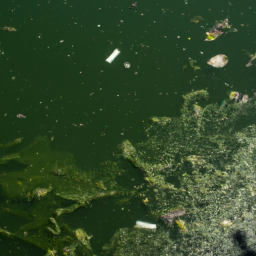Methamphetamines and other drugs can enter freshwater rivers through wastewater, and lab tests show trout can become addicted, leading to serious environmental consequences. The production of synthetic drugs like ecstasy and crystal meth also contributes to water pollution, as materials from these processes are often dumped, further polluting the local environment.
Studies have shown that terrestrial ecosystems can store large amounts of mercury, which can be subject to methylation, mobilization, and uptake into downstream water bodies. This can have detrimental effects on aquatic life, as fish that have been exposed to methamphetamine for extended periods show signs of withdrawal when deprived of the drug.
Fish in urban waterways may also become addicted to methamphetamine leaching into their habitats. A new lab-based study suggests that fish exposed to this highly addictive stimulant exhibit behaviors consistent with addiction, highlighting the pervasive nature of drug pollution in our water systems.
